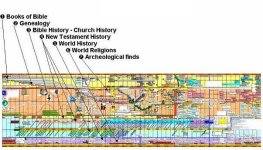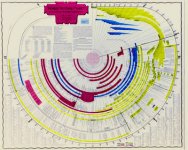The Book of Genesis is essential to understand the foundational myths of Judaism (and to a lesser degree, conservative Christianity.) The Book of Exodus is also an important hagiography of Jewish history regarding their leaving the bondage of Egypt and migrating to modern-day Israel.
Leviticus through Deuteronomy is heavy on ceremonial and legal detail which no one really pays attention to anymore.
Joshua expands the historical segments of Exodus as the Hebrews conquered modern-day Israel. If that sort of history is interesting to you, then First Samuel through Second Chronicles recounts the rise of famous kings like David and Solomon, albeit in a disjointed fashion. You may require some outside sources to get the proper chronological sequence.
Job is an interesting morality play about the role of suffering.
Psalms, Proverbs, and Ecclesiastes are considered "wisdom literature" filled with poems, songs, pithy sayings, and philosophical essays about various subjects.
Song of Solomon is a love poem reportedly from King Solomon to one of his concubines.
What follows in the Old Testament are the major and minor prophets (the distinction being how long their books are.) You can forget any sort of chronological order when reading these as there is none. The lesson in most of them is that Israel was sinning, and the prophet warned the people that if they didn't straighten up Jehovah would punish them in various awful ways. When the books were written was usually interspersed with the historical pieces several books earlier, something which you'll need a commentary to keep straight.
Various books throughout (Ezra, Esther, Nehemiah, Daniel) touch on Israel after it had been conquered and the Israelite elites were physically removed to Persia, then later returned to restore their temple and government.
That's the Old Testament, and their's a long gap between the last chronological book of the Old Testament and the first New Testament book.
The New Testament starts with the four gospels--Matthew, Mark, Luke, and John--which retell the life of Jesus. But despite the events described around 30 CE, they weren't the first Christian books written. Those were the earliest letters of Paul to various churches, written usually one to two decades after Jesus. The Gospels were written in the last half of the first century.
The Book of Acts covers the founding of the first Christian churches and the transition of power/influence from the Jewish disciples to the non-Jewish Paul.
The epistles of Paul, Peter, and John are a blend of how to run a proper church, what a proper Christian should and should not believe, and should and should not do. Romans is Paul's most expansive theological treatise.
The Book of Revelations is a retelling of a prophetic vision of the future and triumph of the Church, meant to be a source of comfort during persecution.
Hope this helps. I found Isaac Asimov's guide to the Bible to be an essential companion as he explains much of the historical and political background behind the Bible.


